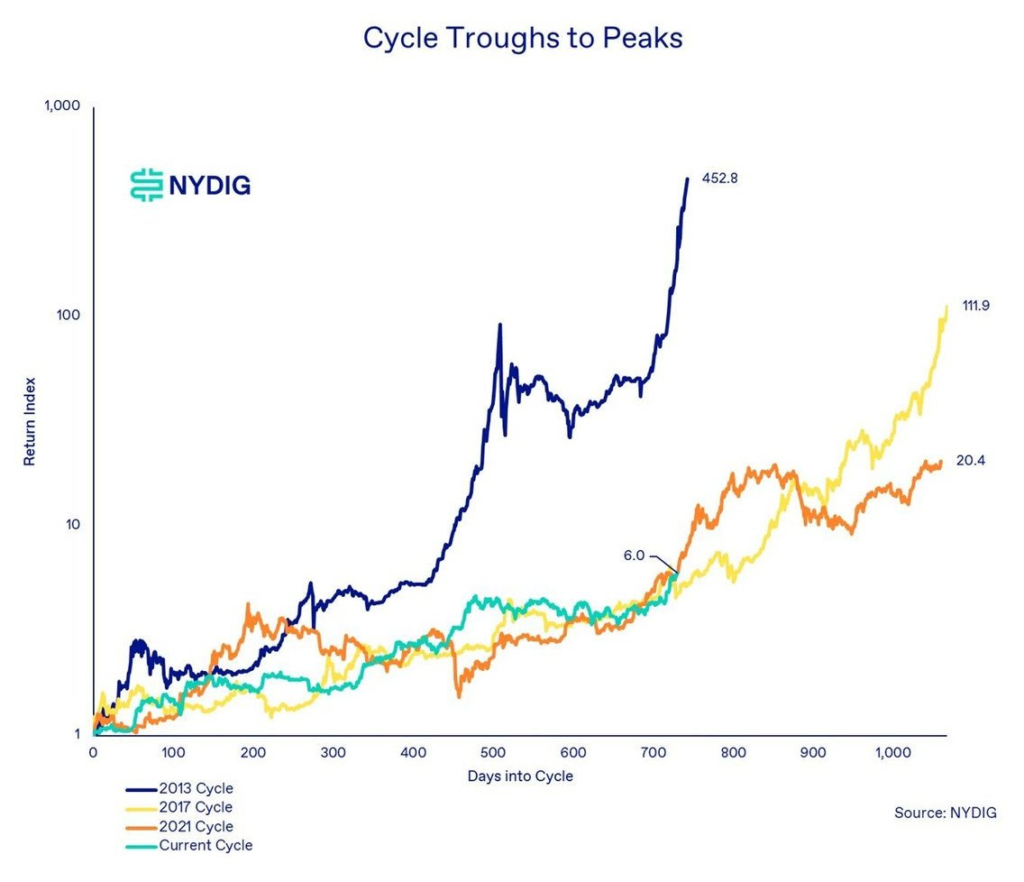-
Bitcoin approached $100,000, facing challenges from manipulative tactics like Bitcoin spoofing.
-
Spoofing deters new investors, hindering innovation in Africa’s blockchain sector.
-
Profit-taking behaviors among Bitcoin traders, particularly when unrealized profits reach record highs, can cause market fluctuations that are exacerbated by spoofing.
As Bitcoin neared $100,000 for the first time, traders faced an unexpected hurdle: Bitcoin spoofing.
This manipulative tactic has emerged as one of the primary factors shaping cryptocurrency price movements globally and within Africa; understanding its effects is paramount for financial inclusion across Africa.
This article delves into resistance around BTC prices as a barrier to adoption among long-term holders; profit-taking behaviors among these holders and the impact of asking liquidity trends on Bitcoin trading are discussed further herein.
How Bitcoin Spoofing is Shaping Price Movements
Bitcoin’s struggle to breach $100k serves as an illustration of market forces colliding with manipulative practices like “Bitcoin Spoofing.”
Recently, in trading sessions, large walls of ask liquidity have been strategically placed just below this psychological barrier, prompting automated trading bots to liquidate holdings at lower prices, resulting in an unpredictable downward spiral for Bitcoin prices.
Volatility pervades global markets, making its dynamics particularly crucial to African investors and blockchain stakeholders.

Spoofing can discourage new investors from entering cryptocurrency-related ventures altogether – ultimately hampering innovation and expansion within Africa’s rapidly developing blockchain space.
Also, Read: What BTCparser’s Findings Mean for Africa’s Bitcoin Market.
Demystifying BTC Spoofing and Market Manipulation
To understand BTC spoofing, it’s necessary to dive deep into its mechanics.
At its core, this practice involves placing large orders that are quickly cancelled before execution, creating the impression of demand or supply that misleads other traders about market conditions.
Ask liquidity plays an essential part here, especially when large sell orders appear close to critical support levels like $100K, leading them to activate trading algorithms designed to react swiftly and predictably to perceived shifts in supply and demand; such reactions often lead to greater price instability in Bitcoin (BTC) prices.
African traders navigating these treacherous waters need education more than ever, especially regarding market manipulation techniques such as asking for liquidity requests.
By understanding how such practices operate, they can better protect themselves against losses associated with deceptive trading practices that might otherwise cause losses.
Understanding Record Profit-Taking Trends
Recent data show how crypto traders are reaping record profit-taking, notching total gains of $443 million as Bitcoin reached near its $99,800 peak price point. Such actions indicate shifting investor sentiment that may influence BTC price trends in turn.
Unrealized profit levels jumped 57% last quarter, reaching near historical peaks that have previously caused corrections, something many analysts are closely keeping track of today.
Profit-taking activities intensify amid concerns over market stability caused by BTC spoofing. Therefore, it becomes ever more crucial for African investors to develop effective strategies that enable them to weather these fluctuations effectively.
Investors should diversify their portfolios and stay vital in monitoring signals that suggest possible corrections or bullish reversals driven by fundamental economic forces rather than sheer speculation.
Beyond the Noise: How Spoofing and Growth Trends Shape the Future
Even amid current market manipulation challenges, optimistic projections for Bitcoin remain widespread among analysts. Caleb Franzen sets an ambitious goal of reaching $175,000 BTC by 2025 if this goal can be accomplished while also clearing away obstacles like those caused by “spoofing.”
African blockchain innovators have ample opportunity to capitalize on this projected growth to meet community needs with local solutions tailored specifically for them.
Though challenges such as liquidity manipulation might appear intimidating at first, they provide unique chances to develop decentralized financial services which prioritize transparency and inclusivity.
Africa can use innovative strategies rooted in education and awareness of market manipulation to turn obstacles into opportunities, creating an ideal setting for sustainable digital economic growth.
Opportunities Amidst Challenges
Understanding how Bitcoin spoofing, profit-taking behaviours and instances of market manipulation impact crypto markets is fundamental for Africa’s crypto community as a whole.
Key takeaways include understanding how the strategic placement of ask liquidity affects BTC price stability while remaining vigilant against deceptive practices prevalent in today’s markets.
African innovators hoping to take full advantage of Bitcoin’s growth potential should now seize this moment and explore educational resources available on platforms like Web3Africa.news.
African innovators have an opportunity to contribute positively to creating a resilient blockchain ecosystem across Africa. We can accomplish this by understanding concepts such as liquidity provisioning and campaigning against harmful manipulation.
